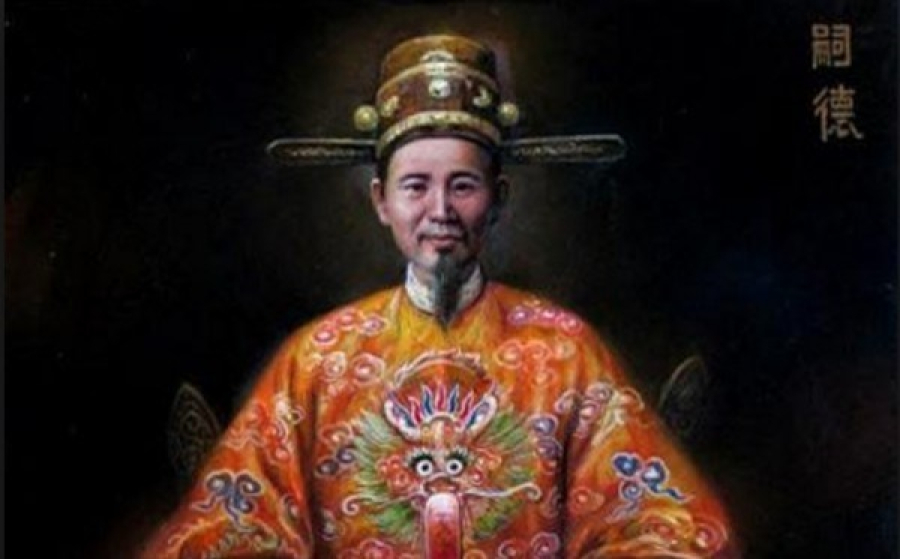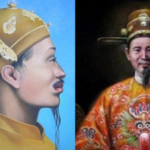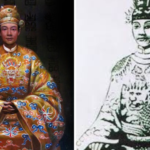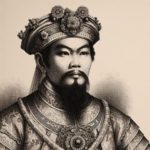Emperor Tu Duc (1829–1883), born Nguyen Phuc Hong Nhahm, was the fourth emperor of the Nguyen Dynasty, reigning from 1847 to 1883. He is one of the most prominent figures in Vietnamese history, known not only for his policies and progressive ideas but also for having the most wives and concubines in the history of Vietnam.
Emperor Tu Duc was renowned for his love of learning, intelligence, and passion for literature. He left behind a wealth of poetry and prose, which hold significant value in Vietnam’s classical literature. However, his health was frail, and he suffered from various ailments, including smallpox in his youth, which affected his fertility.

Emperor Tu Duc
Historical records indicate that Emperor Tu Duc had 103 wives, yet he had no children of his own. His frail health and childhood illnesses rendered him unable to father children, leading to the adoption of heirs from other royal family members to secure the succession of the throne. While he had numerous wives, his official empress was Le Thien Anh Hoang Hau (Phan Thi Dieu), and among his concubines, only a few held a special place in his affections, such as Ho Thi Van, also known as Hoc Phi.
Emperor Tu Duc was a loving and respectful husband to his wives. He devoted significant time to ensuring their well-being, and many of them were bestowed with prestigious titles and honors by him. The lack of offspring led the emperor to adopt heirs from other royal family members to ensure a smooth succession. This decision, however, resulted in power struggles and disputes among the royal family and various factions within the court after his death.
Emperor Tu Duc’s reign ended in 1883, leaving behind a weakened court and political instability. Despite his cultural and artistic contributions, the court’s fragility and the absence of a direct heir created opportunities for deeper French colonial intervention in Vietnam.
Emperor Tu Duc remains a significant and influential figure in the history of the Nguyen Dynasty. While known for his numerous wives, the lack of offspring had unfortunate consequences for the stability of the dynasty and the country. His legacy, including architectural and literary works, is still celebrated today, but the challenges he faced also serve as important lessons in Vietnam’s feudal history.
The King with the Most Wives in Vietnamese History, up to 103 but no heirs
 Wives in Vietnamese History, up to 103 but no heirs’>
Wives in Vietnamese History, up to 103 but no heirs’>This king is known as the most polygamous ruler in the history of Vietnamese kings. However, he did not have any heirs. Let’s find out why.




































